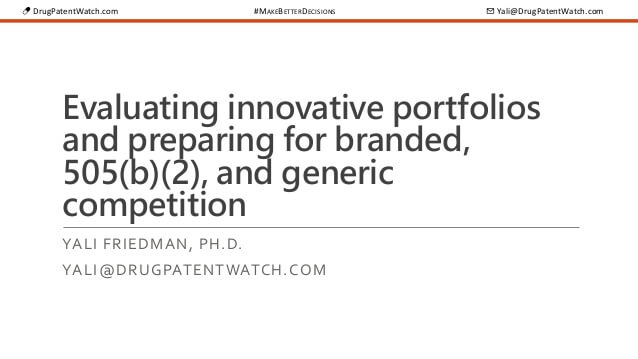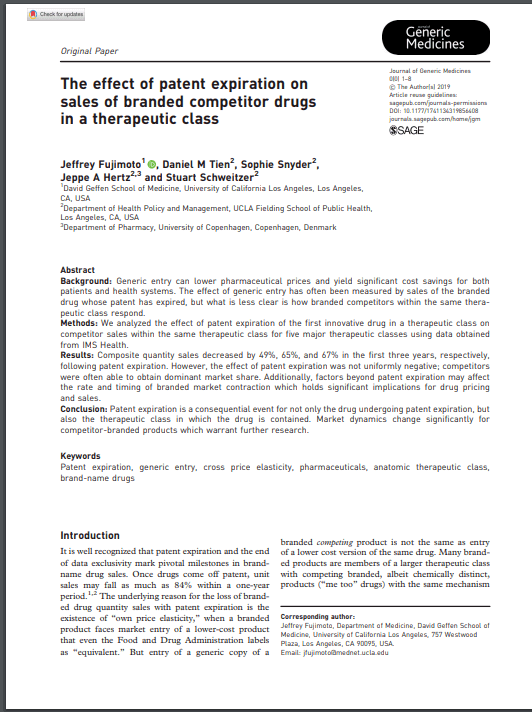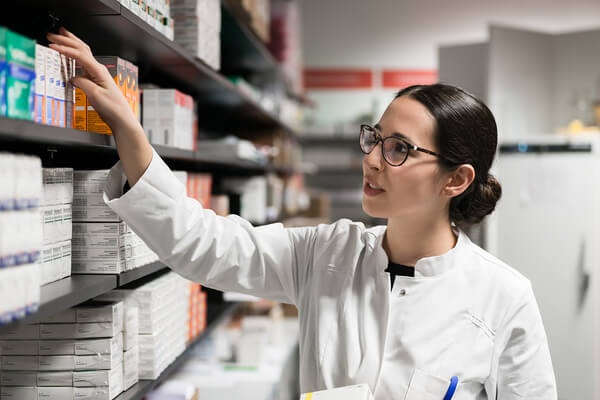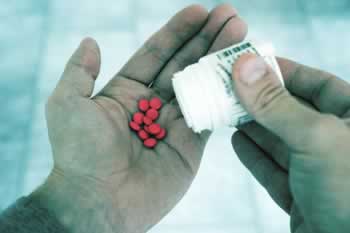China has established itself as the undisputed powerhouse in the global Active Pharmaceutical Ingredient (API) market, fundamentally reshaping how pharmaceutical supply chains operate worldwide. With approximately 20% of global API production and exports to 189 countries, China’s influence on generic drug manufacturing cannot be overstated. The nation’s combination of vast production capacity, cost advantages of 35-40% below Western competitors, and increasingly sophisticated quality control measures has positioned it as the backbone of the global pharmaceutical supply chain. This comprehensive analysis explores China’s dominant position in the API market, examining market dynamics, regulatory developments, challenges, and future trends that will define this critical sector through 2035.
Understanding the API Landscape
The pharmaceutical industry’s foundation rests on Active Pharmaceutical Ingredients (APIs), the essential building blocks that produce therapeutic effects in medications. China’s strategic positioning in this market represents one of the most significant developments in global healthcare manufacturing over the past two decades.
What Are Active Pharmaceutical Ingredients?
Active Pharmaceutical Ingredients constitute the biologically active components of pharmaceutical drugs responsible for producing the intended therapeutic effects. These highly complex chemical compounds form the core of both branded and generic medications, making them indispensable in pharmaceutical manufacturing.
APIs differ from excipients, which are pharmacologically inactive substances that serve as vehicles or mediums for drug delivery. While excipients ensure proper formulation and stability, APIs determine the medication’s efficacy. The production of APIs requires sophisticated chemical or biological processes, advanced manufacturing capabilities, and strict quality control measures to ensure safety and consistency.
The manufacturing pathway for APIs typically involves multiple chemical reactions, purification steps, and quality testing phases. These complex processes require specialized equipment, technical expertise, and rigorous regulatory compliance. The intricacy of API production creates significant barriers to entry, which has contributed to the concentration of manufacturing in countries with established capabilities and cost advantages.
“APIs are the foundation of modern medicine, representing the critical active components that enable pharmaceutical treatments to function,” explains Dr. Michael Thompson, a pharmaceutical manufacturing expert. “Without reliable, high-quality API production, the entire global drug supply chain would collapse.”
The Generic Drug Revolution
Generic drugs have revolutionized global healthcare by providing cost-effective alternatives to branded medications once patent protections expire. These medications contain identical active ingredients to their branded counterparts but typically cost 80-85% less, making essential medicines accessible to billions of people worldwide.
The global generic drug market has experienced phenomenal growth, with a projected value of approximately $650 billion by 2028. This expansion is driven by several factors, including:
- Growing healthcare costs forcing governments and insurers to seek affordable alternatives
- Expiring patents on blockbuster drugs opening new market opportunities
- Increasing prevalence of chronic diseases requiring long-term medication
- Greater acceptance of generic medications among healthcare providers and patients
China’s dominance in API production directly supports this generic drug revolution. By providing cost-effective, high-quality APIs to generic manufacturers worldwide, China has become an essential enabler of affordable healthcare globally.
China’s Commanding Position in the Global API Market
China’s ascent to API manufacturing dominance represents one of the most significant shifts in pharmaceutical supply chains over the past three decades. This transformation has fundamentally altered how medications are produced and distributed worldwide.
Market Share and Production Capacity
China currently commands an impressive 20% share of global API production by volume, with approximately 40% of APIs exported worldwide originating from Chinese manufacturing facilities3. This dominant position extends across virtually all major therapeutic categories, making China the world’s factory for pharmaceutical raw materials.
The country’s API production capacity is truly remarkable, exceeding 2 million tons annually across more than 2,000 distinct API drug products1. This massive manufacturing infrastructure has been built through decades of strategic investment, government support, and continuous expansion of technical capabilities.
China’s API industry encompasses thousands of manufacturers ranging from small-scale producers to massive industrial complexes. According to industry data, over 1,500 API manufacturers operate in China, with more than 500 facilities registered with the U.S. Food and Drug Administration (FDA).
The scale of China’s API production becomes even more impressive when examining market projections. The Chinese Active Pharmaceutical Ingredients market is expected to grow from USD 15.97 billion in 2025 to USD 23.32 billion by 2030, representing a healthy CAGR of 7.86%6. This growth trajectory outpaces the global API market average, further cementing China’s dominant position.
Therapeutic Categories Dominated by Chinese Manufacturing
China’s API manufacturing strength extends across virtually all major therapeutic categories, but its dominance is particularly pronounced in several critical medication classes:
Analgesics and Pain Management
Chinese manufacturers produce 90-95% of the ibuprofen imported by the United States and European Union8. This near-monopoly on a widely used pain reliever demonstrates China’s control over essential medication components. Similarly, Chinese companies produce most of the raw materials for other common analgesics, including naproxen and various opioid-based pain medications.
Antipyretics and Fever Reducers
Approximately 70% of the global paracetamol (acetaminophen) supply originates from Chinese manufacturing facilities8. This widely used fever reducer and pain reliever is a cornerstone of basic healthcare worldwide, making China’s dominance in this category particularly significant.
Antibiotics and Antimicrobials
China produces over 80% of key antibiotic APIs, including doxycycline, azithromycin, and amoxicillin8. This control over antimicrobial raw materials has profound implications for global health security, particularly as antimicrobial resistance becomes an increasingly urgent healthcare challenge.
Diabetes Management Medications
Metformin, the first-line medication for type 2 diabetes used by hundreds of millions of patients worldwide, relies heavily on Chinese API manufacturing, with over 80% of global supply originating from China8. As diabetes rates continue to rise globally, this dependency becomes increasingly significant.
“China commands the global API market, with overwhelming market share in critical therapeutic categories: analgesics (Ibuprofen: 90-95% of US/EU imports), antipyretics (Paracetamol/Acetaminophen: ~70% global supply), antibiotics (Doxycycline), antimicrobials (Azithromycin), and antidiabetics (Metformin) having>80% import dependency, among numerous other essential pharmaceutical raw materials.”8
This concentration of manufacturing capability gives China unparalleled influence over the global pharmaceutical supply chain, creating both opportunities and potential vulnerabilities for healthcare systems worldwide.
Factors Driving China’s API Market Leadership
China’s dominance in API manufacturing didn’t happen by accident. Multiple strategic advantages have converged to create the perfect conditions for China’s pharmaceutical raw material industry to flourish.
Compelling Cost Advantages
The most significant factor driving China’s API dominance is its substantial cost advantage over competitors. Chinese manufacturers can typically price APIs 35-40% below Western competitors while maintaining compliance with international quality standards8. This dramatic price differential creates an almost irresistible incentive for pharmaceutical companies to source APIs from China.
Several factors contribute to China’s cost advantages:
- Lower labor costs: Despite rising wages in recent years, China’s labor costs remain significantly lower than those in Western countries and even below competitors like India in many regions.
- Economies of scale: The sheer volume of production enables Chinese manufacturers to achieve efficiencies unavailable to smaller producers.
- Integrated supply chains: China’s well-developed chemical industry provides ready access to precursors and intermediates needed for API production.
- Energy and utility costs: Government subsidies and policies often result in lower electricity, water, and other utility costs for API manufacturers.
- Reduced regulatory compliance costs: While improving, China’s environmental and worker safety regulations historically imposed lower compliance costs than Western standards.
Industry analysts estimate that production costs in China are 20-30% lower than in India, China’s nearest competitor in the API market3. This cost differential has proven decisive in capturing market share, particularly for high-volume, commodity APIs.
Government Support and Strategic Planning
The Chinese government has consistently recognized the pharmaceutical industry as a strategic sector deserving special attention and support. This official backing manifests through various policies and initiatives:
- Five-Year Plans: China’s successive Five-Year Plans have specifically targeted pharmaceutical manufacturing for development and expansion, providing policy support and investment incentives.
- Made in China 2025: This strategic plan identifies pharmaceuticals as one of ten key sectors for advancement, encouraging technological innovation and quality improvements.
- Tax incentives: API manufacturers often benefit from reduced taxation rates, tax holidays for new facilities, and export tax rebates.
- Infrastructure investment: Government spending on transportation, utilities, and industrial parks creates an enabling environment for API manufacturing.
- Research and development support: Subsidies and grants for pharmaceutical R&D help Chinese companies move up the value chain toward more complex APIs.
The government’s long-term commitment to pharmaceutical manufacturing has created a stable, supportive environment for API producers to thrive and expand. This strategic backing stands in contrast to the more market-driven approaches in Western economies.
Advanced Manufacturing Infrastructure
China has invested heavily in building world-class manufacturing infrastructure for API production. Modern facilities equipped with advanced technology enable Chinese manufacturers to meet international quality standards while maintaining cost advantages.
In January 2024, WuXi AppTec established a state-of-the-art API manufacturing facility in Taixing, China, significantly expanding its peptide manufacturing capacity to meet growing global demand6. Similarly, AstraZeneca announced a USD 26.5 million investment in January 2024 to construct production lines for metformin hydrochloride and dapagliflozin, demonstrating the continued attraction of China’s API manufacturing sector for global pharmaceutical companies6.
These investments showcase the sophisticated manufacturing capabilities now available in China, which increasingly incorporate:
- Continuous flow chemistry processes
- Advanced automation and digitalization
- Integrated quality control systems
- Environmentally sustainable technologies
- Modular manufacturing approaches
The scale of these facilities is often impressive, with some Chinese API manufacturing complexes spanning hundreds of acres and employing thousands of workers. This combination of scale and advanced technology creates formidable competitive advantages.
China’s Global API Supply Chain Integration
China’s API industry has developed sophisticated global supply chain networks that serve pharmaceutical manufacturers worldwide, creating complex interdependencies across the industry.
Export Markets and Global Reach
China’s API exports reach approximately 189 countries and regions globally, with particular concentration in Asia, Europe, and North America3. This extensive export network has made Chinese APIs ubiquitous throughout the global pharmaceutical supply chain.
The destinations for Chinese API exports reflect both the geography of pharmaceutical manufacturing and the patterns of healthcare consumption:
- India: The world’s largest producer of finished generic pharmaceuticals relies heavily on Chinese APIs, creating a symbiotic relationship between the two Asian pharmaceutical powers.
- United States: Despite political tensions, the U.S. remains a major destination for Chinese APIs, with American pharmaceutical companies heavily dependent on these inputs.
- European Union: European generic and branded pharmaceutical manufacturers source significant quantities of APIs from China, particularly for high-volume products.
- Emerging markets: Countries with growing pharmaceutical manufacturing sectors, including Brazil, Mexico, Turkey, and South Africa, increasingly rely on Chinese APIs.
- Domestic consumption: China’s own rapidly growing pharmaceutical market absorbs a significant portion of locally produced APIs.
The global nature of these export relationships demonstrates China’s central role in pharmaceutical supply chains across all major markets. According to the China Chamber of Commerce for Import & Export of Medicine and Health products, APIs produced and exported by China reached 10.12 million tonnes in 2019 (a 9% year-on-year increase), worth $33.7 billion (a 12% year-on-year increase)3.
Supply Chain Vulnerabilities and Dependencies
The concentration of API manufacturing in China creates potential vulnerabilities in the global pharmaceutical supply chain. According to former FDA official Steven Lynn, “a great proportion of the world’s APIs come from China, whether it be a new drug, a generic drug, or biotech raw materials. Most of those APIs are then exported to India, where the finished dosages are made.”4
This dependency creates several potential risks:
- Supply disruptions: Events such as the COVID-19 pandemic demonstrated how disruptions in Chinese manufacturing could threaten global medicine supplies.
- Quality control issues: Despite improvements, quality problems at Chinese API facilities can have widespread impacts on global drug supplies.
- Geopolitical leverage: China’s dominance in essential medication components potentially provides geopolitical leverage during international disputes.
- Economic vulnerability: Price fluctuations or policy changes in China can significantly impact pharmaceutical economics globally.
The recognition of these vulnerabilities has prompted discussions about supply chain resilience and diversification in many countries, particularly in the wake of COVID-19-related disruptions. However, the economic advantages of Chinese API sourcing remain compelling for most pharmaceutical manufacturers.
The Evolving Regulatory Landscape
China’s API industry is undergoing significant regulatory transformation as it matures and seeks to address historical quality concerns. These regulatory developments are crucial to understanding China’s future role in the global API market.
Domestic Regulatory Framework
China has implemented comprehensive drug regulations encompassing various aspects such as API registration renewal, manufacturing outsourcing by marketing authorization holders (MAHs), and enhanced drug inspection protocols6. These regulatory reforms demonstrate China’s commitment to strengthening its position in the global pharmaceutical supply chain while ensuring product quality and safety.
The National Medical Products Administration (NMPA), China’s regulatory authority for pharmaceuticals, has shown increased efficiency in drug approvals, with approximately 87 innovative drugs receiving approval in 20236. This regulatory maturity reflects China’s determination to elevate its pharmaceutical industry to world-class standards.
Key elements of China’s evolving regulatory framework include:
- Volume-based procurement: China’s centralized procurement system increasingly rewards quality and reliability alongside competitive pricing.
- GMP standards: Good Manufacturing Practice requirements in China continue to align more closely with international standards.
- Traceability requirements: Enhanced traceability throughout the supply chain helps ensure quality and prevent counterfeiting.
- Environmental regulations: Increasingly stringent environmental standards are addressing historical pollution issues in API manufacturing.
- Quality by Design (QbD): Advanced quality management approaches are being adopted by leading Chinese manufacturers.
These regulatory improvements help address historical concerns about Chinese API quality while maintaining the industry’s competitive advantages. The Chinese government recognizes that regulatory excellence is essential for maintaining and expanding the country’s API market leadership.
International Compliance and Standards
Chinese API manufacturers increasingly operate within international regulatory frameworks, with hundreds of facilities registered with the U.S. FDA and European Medicines Agency (EMA). This international compliance capability has been essential to China’s API export success.
The process for international certification is demanding and involves:
- Facility inspections: Regular on-site inspections by international regulatory authorities.
- Documentation reviews: Comprehensive assessment of manufacturing procedures and quality controls.
- Stability testing: Demonstration of consistent quality and stability over time.
- Impurity profiling: Detailed characterization and control of potential impurities.
- Ongoing monitoring: Continued surveillance through inspection and quality reporting.
The number of FDA-registered pharmaceutical manufacturing facilities in China more than doubled between 2010 and 2019, reflecting both the growth of the industry and increasing compliance with international standards1. This trend continues as Chinese manufacturers recognize the importance of regulatory excellence for accessing global markets.
Challenges and Strategic Considerations
Despite its dominant position, China’s API industry faces several significant challenges that could impact its future trajectory and global influence.
Quality Assurance and Consistency
While quality standards have improved substantially, quality-related incidents involving Chinese APIs have occasionally disrupted global supply chains. These incidents have prompted increased scrutiny from international regulators and customers.
Notable quality challenges have included:
- Contamination issues: Historical incidents of API contamination have raised concerns about quality control processes.
- Data integrity: Questions about the reliability of manufacturing and testing data have emerged in some regulatory inspections.
- Consistent implementation: While leading manufacturers maintain excellent standards, quality can vary significantly across the industry.
- Counterfeiting risks: The large number of manufacturers creates challenges in preventing fraudulent or substandard products.
Chinese regulators and industry leaders have responded with intensified quality initiatives, including more frequent inspections, enhanced penalties for violations, and industry-wide quality improvement programs. These efforts aim to protect and enhance China’s reputation for API quality.
Environmental Sustainability Pressures
API manufacturing historically involved significant environmental impacts, including air and water pollution. China’s environmental regulations were once relatively permissive, creating cost advantages but also environmental challenges.
Recent years have seen dramatic changes in China’s approach to environmental protection in pharmaceutical manufacturing:
- Stricter emissions standards: New regulations have significantly reduced allowable emissions from API production facilities.
- Enforcement campaigns: Government-led environmental enforcement actions have targeted non-compliant manufacturers.
- Consolidation effects: Environmental requirements have accelerated industry consolidation, with smaller, non-compliant manufacturers closing.
- Green manufacturing incentives: Government programs now encourage adoption of environmentally sustainable manufacturing processes.
- Circular economy approaches: Leading manufacturers are implementing water recycling, solvent recovery, and waste reduction programs.
These environmental initiatives, while necessary and beneficial, have increased production costs for Chinese API manufacturers. However, they also position the industry for long-term sustainability and continued international acceptance.
Technology and Innovation Imperatives
China’s historical advantage in API manufacturing has been primarily cost-based. As labor costs rise and competition increases, technological advancement and innovation become increasingly important for maintaining competitiveness.
Chinese API manufacturers are pursuing several approaches to technological leadership:
- Process intensification: Developing more efficient, continuous manufacturing processes that reduce costs and environmental impact.
- Biocatalysis: Employing enzymatic processes that enable more selective, efficient chemical transformations.
- Flow chemistry: Implementing continuous flow methods that improve yield, reduce waste, and enhance safety.
- Digitalization: Adopting advanced process control, artificial intelligence, and digital twins to optimize manufacturing.
- Green chemistry: Developing environmentally friendly synthesis routes and solvents.
Industry leaders are investing heavily in these technologies to move beyond simple cost advantages toward technological differentiation. This evolution mirrors China’s broader economic transition from low-cost manufacturing to innovation-driven growth.
Future Outlook and Market Projections
The future of China’s API industry will be shaped by multiple factors, including market growth, technological development, policy changes, and evolving competitive dynamics.
Market Growth Trajectories
The China pharmaceutical intermediate market is projected to grow from USD 9,309.7 million in 2025 to USD 17,276.3 million by 2035, at a CAGR of 6.4%5. This robust growth reflects both expanding domestic pharmaceutical consumption and continued export strength.
Several factors will drive this growth:
- Aging global population: Demographic trends will increase pharmaceutical consumption worldwide, creating sustained demand for APIs.
- Expansion of healthcare access: Growing middle classes in emerging markets are gaining access to more sophisticated pharmaceutical treatments.
- Chronic disease prevalence: Lifestyle-related conditions like diabetes and cardiovascular disease require ongoing medication, driving API demand.
- Biopharmaceutical growth: Expansion of biologics creates demand for specialized intermediates and raw materials.
- Personalized medicine: Advanced therapeutic approaches create opportunities for specialized, high-value APIs.
These growth drivers suggest a positive long-term outlook for China’s API industry, assuming it continues to adapt to changing market requirements and regulatory expectations.
Competitive Dynamics and Market Evolution
While China’s dominance in API manufacturing remains secure for now, competitive pressures are emerging from multiple directions:
- Indian manufacturers: India continues to expand its API capabilities, sometimes offering cost advantages for certain products.
- Reshoring initiatives: Concerns about supply chain resilience have prompted some Western nations to incentivize domestic API production.
- Emerging competitors: Countries including Vietnam, Indonesia, and Mexico are developing API manufacturing capabilities.
- Technological disruption: Advanced manufacturing technologies could potentially reduce the importance of labor cost advantages.
- Regulatory barriers: Tightening regulations in import markets could create challenges for some Chinese manufacturers.
Despite these competitive pressures, China’s established infrastructure, scale advantages, and improving technological capabilities position it well to maintain market leadership. However, the industry will likely need to move up the value chain toward more complex, specialized APIs to sustain its growth trajectory.
Strategic Implications for Global Pharmaceutical Companies
Pharmaceutical companies worldwide must develop sophisticated strategies for engaging with China’s API sector. Several approaches are emerging:
- Strategic partnerships: Long-term relationships with selected Chinese manufacturers to ensure supply security and quality.
- Dual sourcing: Maintaining alternative supply sources to mitigate disruption risks while benefiting from Chinese cost advantages.
- Quality verification: Implementing robust supplier qualification and ongoing monitoring programs.
- Technology transfer: Collaborating on process improvements and technology adoption to enhance quality and efficiency.
- Regulatory navigation: Developing expertise in working with both Chinese and international regulatory frameworks.
Companies that develop sophisticated, nuanced approaches to Chinese API sourcing can gain significant competitive advantages through cost savings, supply security, and access to innovation.
Key Takeaways
China’s dominant position in the global generic drug API market represents one of the most significant developments in pharmaceutical manufacturing of the past three decades. This analysis reveals several critical insights:
- Market dominance: China produces approximately 20% of the world’s APIs by volume and 40% of exported APIs, with particular strength in essential medications like pain relievers, antibiotics, and diabetes treatments13.
- Economic impact: The China Active Pharmaceutical Ingredients market is projected to grow from USD 15.97 billion in 2025 to USD 23.32 billion by 2030, representing a CAGR of 7.86%6.
- Competitive advantages: Chinese manufacturers maintain cost advantages of 35-40% below Western competitors while increasingly meeting international quality standards8.
- Supply chain integration: Chinese APIs reach approximately 189 countries and regions, creating global dependencies and potential vulnerabilities3.
- Regulatory evolution: China’s API industry is undergoing significant regulatory transformation to align with international standards and enhance quality control measures6.
- Future challenges: Environmental sustainability, quality consistency, and technological advancement represent key challenges for the industry’s continued growth.
- Strategic implications: Pharmaceutical companies worldwide must develop sophisticated approaches to Chinese API sourcing to balance cost advantages with supply security and quality assurance.
China’s role in the global generic drug API market will continue to evolve, but its central importance to pharmaceutical supply chains appears secure for the foreseeable future. Understanding this dynamic landscape is essential for all stakeholders in the pharmaceutical ecosystem, from manufacturers and regulators to healthcare providers and patients.
Frequently Asked Questions
What percentage of global APIs are produced in China?
China accounts for approximately 20% of global API production by volume and around 40% of all APIs exported worldwide13. This dominant position is particularly pronounced in certain therapeutic categories, where Chinese market share can exceed 90%. For example, China produces 90-95% of the ibuprofen imported by the United States and European Union, and approximately 70% of the global paracetamol (acetaminophen) supply8.
How do Chinese API manufacturers maintain their cost advantage?
Chinese API manufacturers maintain cost advantages of 35-40% below Western competitors through several mechanisms8. These include lower labor costs, economies of scale from massive production volumes, integrated supply chains providing ready access to raw materials and intermediates, advantageous energy and utility costs often supported by government policies, and historically lower regulatory compliance costs. Additionally, government support through tax incentives, infrastructure investment, and research grants has helped maintain these cost advantages while quality standards have improved.
What are the main quality concerns regarding Chinese APIs?
Quality concerns regarding Chinese APIs have included historical incidents of contamination, data integrity issues identified during regulatory inspections, inconsistent implementation of quality standards across the industry, and risks associated with counterfeiting due to the large number of manufacturers. However, significant improvements have occurred through stricter domestic regulations, enhanced international compliance requirements, and industry consolidation that has eliminated many lower-quality producers. Leading Chinese API manufacturers now routinely meet or exceed international quality standards.
How is China’s API industry responding to environmental challenges?
China’s API industry is responding to environmental challenges through multiple approaches. These include compliance with increasingly strict emissions standards and wastewater regulations, implementation of green manufacturing processes that reduce solvent use and waste generation, adoption of circular economy approaches including water recycling and material recovery, investment in continuous flow chemistry that typically has reduced environmental impact, and participation in government-incentivized sustainability programs. These environmental initiatives are increasing production costs but positioning the industry for long-term sustainability.
What does the future hold for China’s role in the global generic drug API market?
The future of China’s role in the global generic drug API market appears strong, with projected growth from USD 15.97 billion in 2025 to USD 23.32 billion by 2030 at a CAGR of 7.86%6. However, the industry faces several evolutionary pressures, including the need to move up the value chain toward more complex, specialized APIs, increasing competition from India and emerging manufacturing hubs, growing reshoring initiatives in Western markets concerned about supply chain resilience, and the need to continually improve quality and environmental performance. Chinese manufacturers that successfully navigate these challenges will likely maintain their dominant position while evolving toward higher-value, technology-intensive API production.
Sources cited:
- https://www.drugpatentwatch.com/blog/the-role-of-china-in-the-global-generic-drug-api-market/
- https://www.mantellassociates.com/the-chinese-api-market/
- https://glginsights.com/articles/chinas-role-in-global-generic-pharmaceutical-supply-chain/
- https://www.pharmiweb.com/press-release/2025-03-13/china-pharmaceutical-intermediate-market-poised-for-strong-growth-projected-to-reach-usd-17-2763-m
- https://www.mordorintelligence.com/industry-reports/china-active-pharmaceutical-ingredients-market
- https://www.chemanalyst.com/NewsAndDeals/NewsDetails/china-api-dominance-reshapes-global-pharmaceutical-supply-chains-31893






















